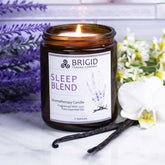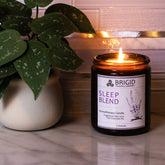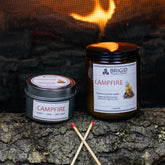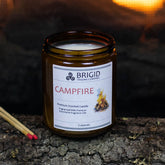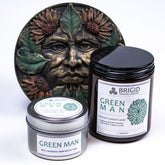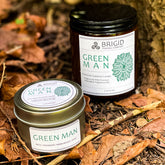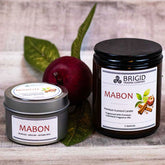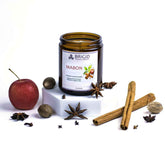Organic Extra Virgin Olive Oil
One of the Oldest, Most Frequently Used Oils for Skincare and Nutrition
Familiar in the kitchen, olive oil is created by pressing whole olives of the olive tree, which is native to Mediterranean regions such as Spain, Greece, Italy and Morocco. It is a readily available ingredient that does not have the same negative environmental effects as other oils, such as palm oil, so we view it as a wonderful and sustainable option.
At Brigid, we use organic extra virgin olive oil of the purest quality as one of our primary bases in our Brigid Oil Blend. Olive oil aids in repairing and regenerating skin with naturally-occurring vitamins and minerals, so there is no need to add them in chemically later. It is a notably thick oil that moisturizes skin exceptionally well, however is too heavy for most skin types when used alone. When blended with lighter oils, it absorbs into skin without feeling heavy, making it ideal base to our blends.
Olive oil has over 8,000 years of documented history. It has been used in everything from religious rituals, medicine, fuel for oil lamps, soap making, and countless skincare applications by people of the past through today - we think that's an awesome tradition to continue!
Primary Benefits of Olive Oil
In skincare, we love olive oil for the following reasons:
- It is extremely moisturizing because it is full of monounsaturated fatty acids and antioxidants.
- Replenishes the lipid barrier (which holds skin cells together), especially when the weather is cold and dry, such as when we use more heat indoors during winter months, or go outside in hot, dry conditions. In extreme conditions, olive oil can even function as a second layer of skin to prevent that yucky dry, cracking feeling in winter.
- Heals broken skin by working as an anti-inflammatory and antioxidant. This aids in healing wounds by assisting collagen production and speeding healing time overall. This includes minor scratches or inflamed skin from minor infections. And according to various studies, olive oil can even reduce sunburn healing time as shown in various studies.
- Eczema can be soothed dramatically with olive oil due to how hydrating it is.
- Sunburns may also be healed more quickly with olive oil due to naturally-occurring properties.
Warnings and Precautions
While we love olive oil, we want to be clear: it is not perfect - here is what you need to know:
- Olive oil should not be worn prior to sun exposure as it can increase the effects of sunburn. Always wear a suitable sunscreen prior to sun exposure, not oil.
- Acne-prone skin can become aggravated from olive oil's heavy properties, and it can clog pores in some people, so it should not be applied to acne-prone skin or those with sensitivity to heavy oils. Arms, legs, and hands are generally considered ideal areas to use olive oil. When blended with other oils and butters, these effects become less concerning. If you are concerned, we recommend you conduct a patch test prior to use.
- Olive oil can feel heavy on its own, and some consider it too heavy for skincare for this reason. We use it with caution in our formulations and all skin types are different, so while we encourage you to try it, you of course know yourself best!
History of Olive Oil
Archeologists show evidence of olive oil production dating back as far as 6000 BC in a prehistoric settlement of Haifa (located in modern Israel). It was importedfrom Crete and Syria to Egypt's dynasties prior to 2000 BC, and Cleopatra was said to be an avid fan of olive oil for skincare. Ancient Minoan civilization used olive oil in religious ceremonies, where it represented wealth. Greek mythology references its place in society and religious uses, and the city of Athens was named after Athena because of her valuable gift of an olive tree. It is central in much of greek and roman mythology, and was the most common carrier oil in ancient perfumery.
When Romans conquered Egypt and Greece, olive oil was an important trade ingredient. Once the Roman Empire was established in these areas and Asia minor, olive orchards were planted throughout the Mediterranean, where Italy was especially productive allowing it to become affordable to everyday Romans. In Ancient Israel, it was used as an anointing oil by priests, prophets, and kings.
Ancient Greeks, famously including Spartans, used olive oil to rub themselves down while exercising in the gymnasia, where they trained nude. Its cosmetic benefits were praised widely by the people of Hellenic city-states.
Modern Applications
Today olive oil is common worldwide, and is still used in many cultural and religious practices.
- Roman Catholics, Anglican, and Orthodox churches use olive oil in the preparation of baptisms (it is used to bless and strengthen them). It can be blended with perfume oils for other rituals, such as the ordination of priests and bishops, and consecrating alters and churches.
- Easter Orthodox Christians use olive oil in lamps for churches, cemeteries, and in home prayer.
- The Church of Jesus Christ of Latter-Day Saints uses it for anointing the sick.
- Jewish traditions originated with olive oil as fuel for menorahs, and used to be only used by those in the Temple by priests. Today it is the generally-preferred fuel for menorahs at Hanukkah.
Sun Exposure Warning
Please exercise caution with all natural oil-based lotions when bare skin is exposed to the sun, as it can worsen the sun's effects. Sun tanning oils tend to include natural oils to increase UV rays - so do not use this unless that is your goal! Wear sunscreen with an appropriate SPF outdoors when it is sunny, not natural oil-based lotions.


